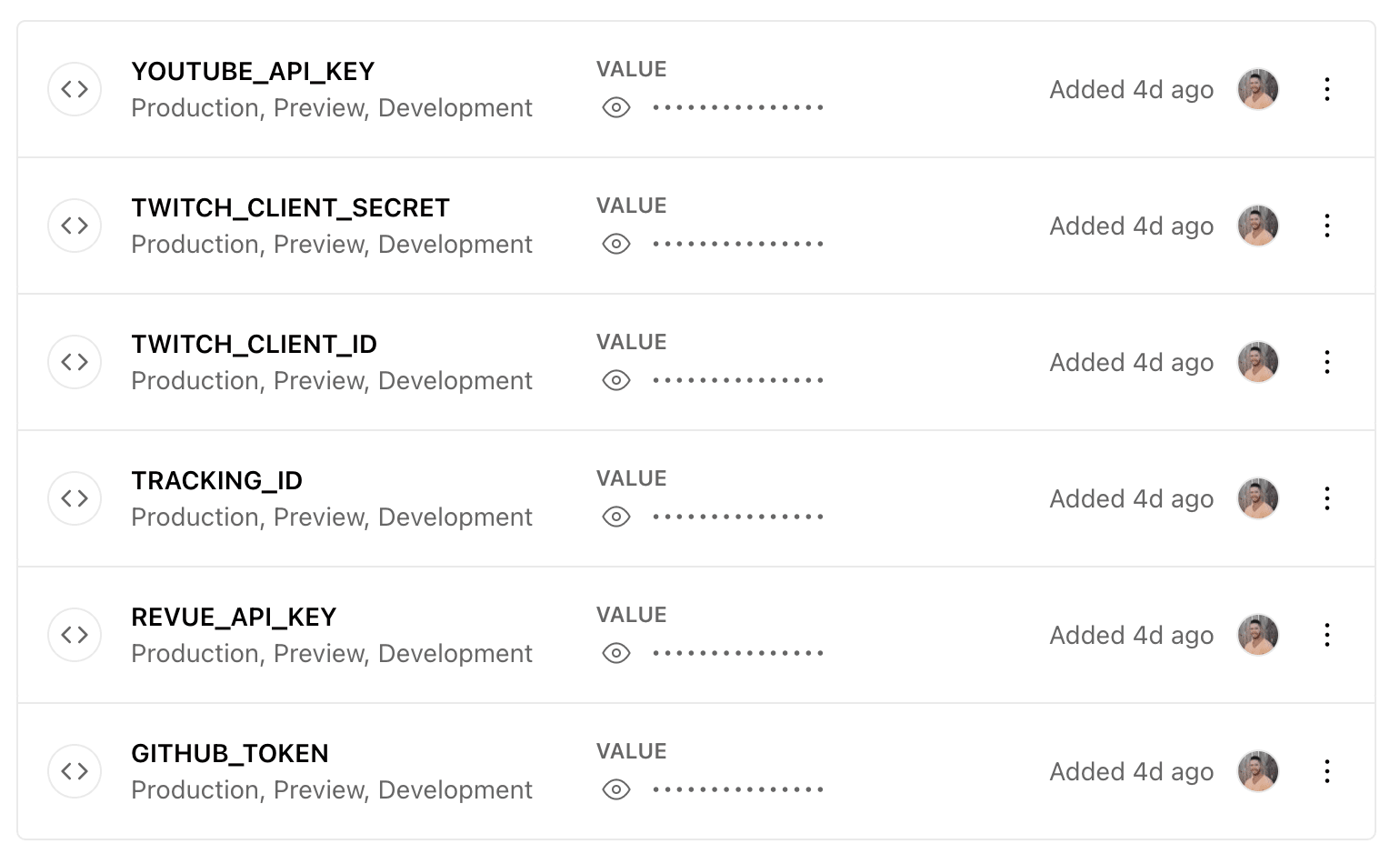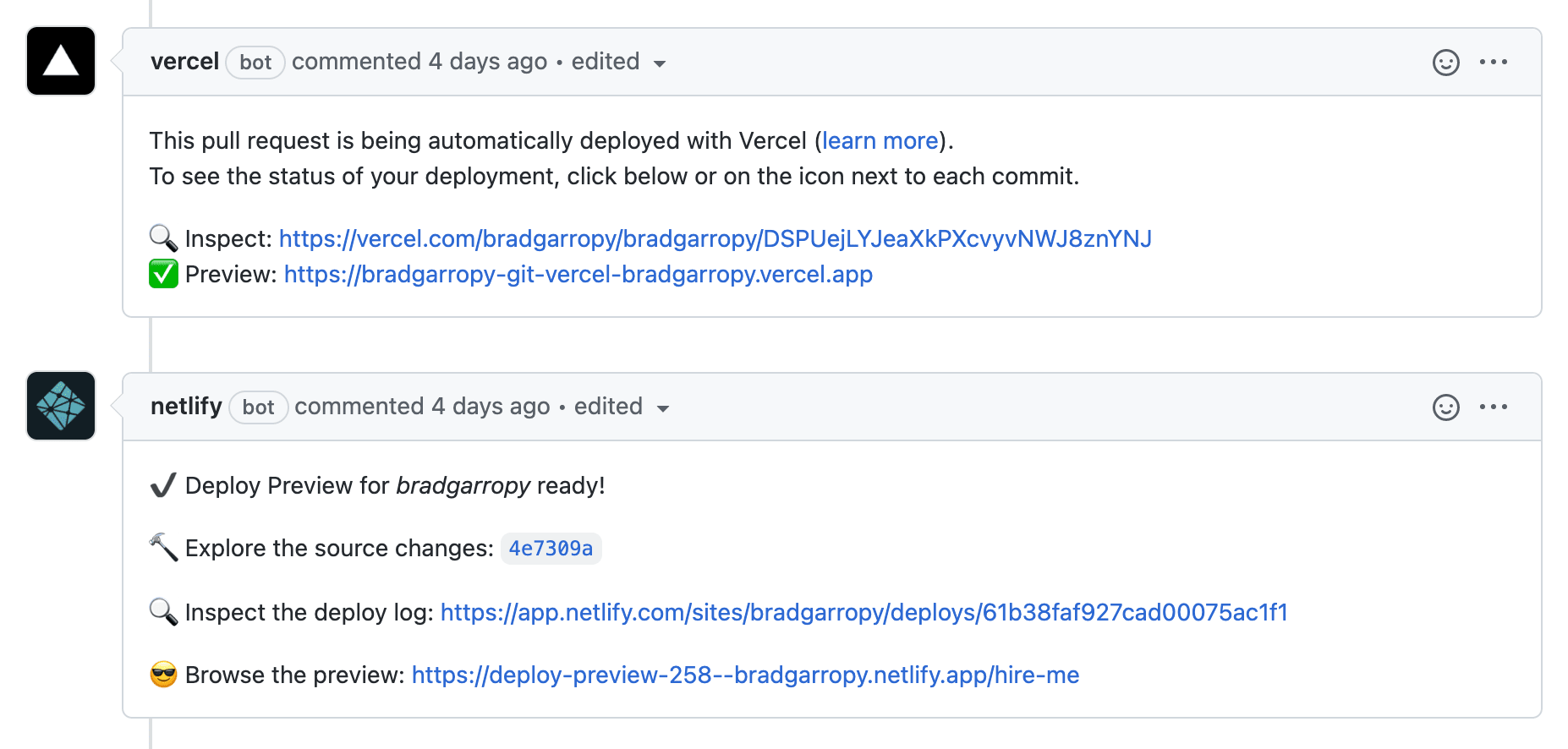▲ netlify to vercel
After running out of build minutes on Netlify, and considering moving this site to Next.js for so long, I decided to give Vercel a shot for hosting my portfolio. The process turned out to be very simple, and now I've got this Gatsby site deployed on both Netlify and Vercel.
Here's the merged pull request, but I'll describe each step, then compare the two hosts at the end.
⚡ serverless functions
The biggest change was to my serverless functions. Netlify expected them to be in the functions directory, and Vercel wants them to be in the api directory with a default export.
The function signature is also a bit different. Vercel uses request and response objects as inputs, which mirror the Express API. I prefer this to Netlify's event input, which is the same as AWS Lambda functions. Vercel also provides some really nice helper methods for dealing with the request body and sending different types of responses.
import {VercelRequest, VercelResponse} from "@vercel/node"
const handler = async (req: VercelRequest, res: VercelResponse) => {
res.status(200).json({})
}
export default handlerAnd bonus, Vercel supports TypeScript out of the box!
⤴️ redirects
I never liked Netlify's options for configuring redirects. The toml file seemed like an odd choice, and the _redirects file felt very non-standard. Thankfully, Vercel has an easy to understand json file to customize redirects.
{
"redirects": [
{
"source": "/sponsor",
"destination": "https://github.com/sponsors/bradgarropy",
"permanent": true
}
]
}All of my redirects are considered permanent, except for the rewrite I had to use for Netlify's serverless functions. But it is no longer needed on Vercel because their functions are already served at the sensible /api endpoint.
🌳 environment variables
The last piece of the puzzle was moving my environment variables over to Vercel. The UI was easy to find and was almost identical to the Netlify UI.

Even better, environment variables on Vercel are searchable and configurable based on the different environments (production, preview, development)
📊 comparison
Now that the conversion is done, I'm running deploys on both hosts for the time being until I make up my mind on which I prefer. The build times seems to be much faster on Vercel, where they average about three minutes compared to an average of five minutes on Netlify.
Both platforms integrate very well with GitHub, and show comments on pull requests. Although for some weird reason Netlify is linking to a different page on my site instead of the home page.

Both hosts also provide CLIs with a dev command that's used for starting a development environment. They both pull in environment variables defined in the UI, so you don't need local .env files, and they both have access to local serverless functions and redirects.
One thing that Vercel offers for free that Netlify doesn't is web vitals monitoring. It keeps track of things like first contentful paint, largest contentful paint, cumulative layout shift, and first input delay, and graphs them over time.

At this point in time, Vercel seems to be the clear winner. It's got feature parity, better build performance, web vitals monitoring, and easier configuration. Plus, if I ever decide to migrate this site to Next.js, it pairs perfectly with Vercel.
Where do you host your websites? Let me know on Twitter!